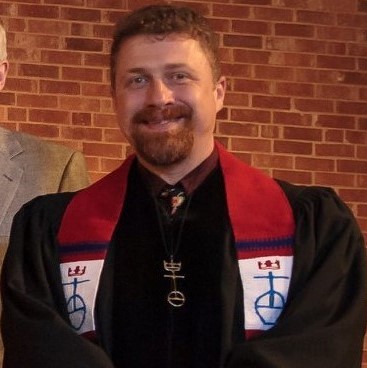13 “You are the salt of the earth. But if the salt loses its saltiness, how can it be made salty again? It is no longer good for anything, except to be thrown out and trampled by men. 14 “You are the light of the world. A city on a hill cannot be hidden. 15 Neither do people light a lamp and put it under a bowl. Instead they put it on its stand, and it gives light to everyone in the house. 16 In the same way, let your light shine before men, that they may see your good deeds and praise your Father in heaven. – Matthew 5:13-16
In the ancient world both salt and light were important commodities. Salt was precious and rare, but had amazing power as a preservative. Salt-cured meat could last longer than meet prepared without salt. The extra days of life salt could bring to food might mean the difference between having food on the table or not for several days during lean times. Salt also added flavor to bland foods and had medicinal properties. Salt was an anti-septic. It could clean out wounds and prevent infection. Salt was not just for flavor but was a life-saving agent.
Light similarly had importance. Jesus’ world was not a world of electric lights. It was a world where light came with costly candles or through supplies like wood gathered through hard work. Yet without light from those candles or those fires, it was hard to get around. Your work would diminish, being kept to only the daylight hours, without the light that came from such costly efforts. If on a journey without lights you are more apt to fall into bandits without some light.
Both salt and light were precious, live-giving commodities. They were not to be wasted, nor to be just hidden away until they became useless. And definitely not, in the case of a candle, to be lit and hidden under a basket – thus becoming used up while not bringing any help to anyone.
Jesus here likens his followers to salt and light because he is reminding us that we cannot make a difference in the world while being afraid of making ourselves known through our actions as his followers and as living out the calling he has given us. We must make the effort to reach out, to let ourselves be known by what we say and do as people who know Jesus, not in a way that beats people over the head with a Bible, but in a way that we can be a healing presence in the lives of others who are hurting and broken and we with Jesus’ Word and help light the way for those lost and stumbling.
Jesus’ Red Letters give us a purpose – to be men and women who are for others, who like Jesus are constantly reaching out beyond our little comfortable circle of “people like us” to those hurting and struggling and on the fringes.
Yet it also gives us a challenge.
Here are a few questions to get you started thinking:
Is the person who is constantly busy at Bible studies, prayer meetings, and church gatherings and has no time left over to make new friends with non-religious neighbors and friends really living out Jesus’ message?
Can a minister or pastor who knows in his heart God does not limit his welcome to clean-living, heterosexual, and gender-conforming people really be faithful to God’s calling while standing by and letting his church exclude people like that?
Can a member of a ministry that welcomes all people really live out this calling if they keep hidden where God has called them for fear that people might think they welcome “people like that,” whether it is recovering addicts, homeless people, or gays?
And what is the balance between sharing your testimony (what God has done in your life), God’s message in Scripture, serving physical needs, and being a listening ear? How do we figure out which God is calling us to do as lights and as salt?
There are not easy answers to any of these questions and I am certain as you meditate on this and other sections of Jesus’ Red Letters during this season of preparation for Easter you will find Jesus challenging you to answer other questions as well. Yet I hope you reflect on the questions this saying of Jesus challenges you with, so we can all more fully live out the purposes God has in our lives. When we do, we will find deeper lives fuller lives, lives that feel even more worth living than before.

Pastor of Life’s Journey UCC in Burlington, N.C., Rev. Micah Royal earned a Master of Divinity in Pastoral Care and Counseling from Campbell Divinity School and served in ordained ministry in various contexts throughout the Carolinas and southern California, including on the board of the Eastern N.C. Association of the United Church of Christ.
